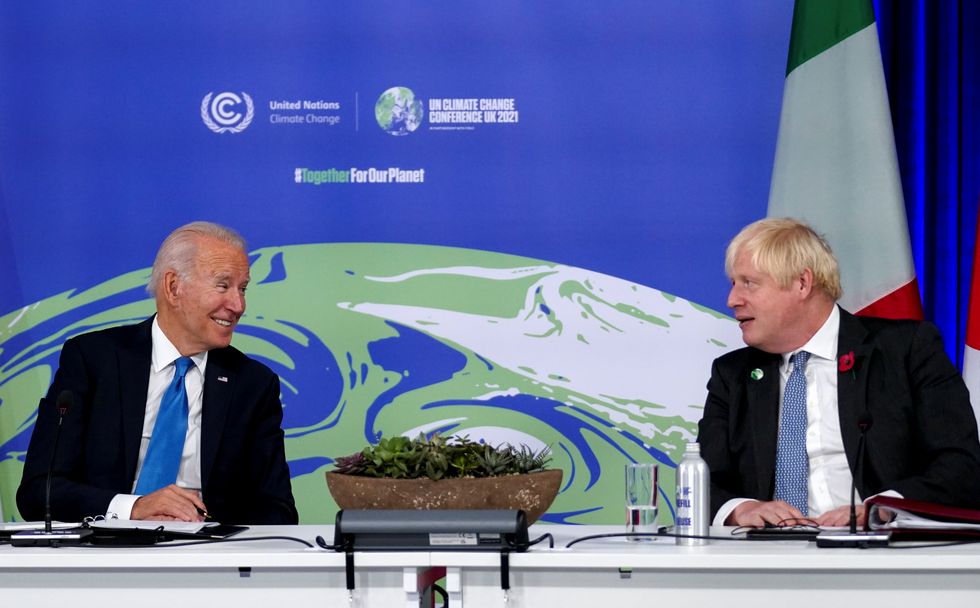Climate editor Justin Rowlatt presented the programme Wild Weather, and claimed deaths are rising worldwide due to extreme weather caused by climate change
Don't Miss
Most Read
Trending on GB News
A BBC Panorama documentary about global warming made a number of false claims, according to an investigation by the broadcaster.
Climate editor Justin Rowlatt presented the programme Wild Weather, and claimed deaths are rising worldwide due to extreme weather caused by climate change.
The documentary also claimed Madagascar was on the verge of being the first country to be hit by climate change-induced famine, but other factors are involved.
The programme was broadcast in November 2021 to coincide with the Cop26 climate conference.
The show sparked two complaints that were investigated by the investigated by the BBC's Editorial Complaints Unit (ECU).
Rowlatt's sister Cordelia was last year revealed to be an Insulate Britain activist after she was arrested for staging a protest M25 alongside other activists.
Justin Rowlatt's sister has face run-ins with authorities due to her actions with Insulate Britain.
Ian West
Ms Rowlatt once appeared on television speaking to her brother about how to be more environmentally friendly.
She pleaded guilty by post at Crawley Magistrates' Court before receiving a £300 fine with £85 court costs and a £34 surcharge for committing a public nuisance on a highway.
The documentary was released to coincide with the Cop26 climate conference.
KEVIN LAMARQUE
The opening of Wild Weather said: 'the death toll is rising around the world and the forecast is that worse is to come,' a statement deemed as potentially misleading by the ECU.
As reported by the World Meteorological Organisation, the number of deaths from weather-related disasters has fallen because of improved early warnings and disaster management.
BBC News said "it accepted the wording in the programme was not as clear as it should have been and a public acknowledgement was put on the BBC's Corrections and Clarifications website before the complaint reached the ECU".
The ECU said "an oversight meant the programme was still available on BBC iPlayer without a link or reference to the published correction, and for that reason the complaint was upheld".
The ECU also considered the language used regarding droughts in the production. It agreed that southern Madagascar has suffered lower-than-average season rainfall in recent years, and climate change is a factor behind the development.
It also acknowledged the reporter using language that was similar to that used by the UN's World Food Programme.
The ECU added: "The statement that Madagascar was on the brink of the world's first climate-induced famine was presented without qualification, whereas other evidence available prior to broadcast suggested there were additional factors which made a significant contribution to the shortage of food.
"The complaint was therefore upheld."











